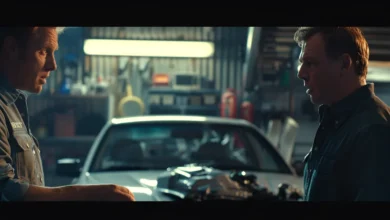Making Money From Your Old Junk Car

Are you staring at a decrepit vehicle, wondering if it’s worth anything more than an eyesore? You might be surprised to learn that your old junk car could still hold some monetary value. From parts that can be reused to the raw materials that can be recycled, there are numerous ways to turn that clunker into cash.
This article will guide you through the process of uncovering the hidden value in your junk car and maximizing your return on what might seem like a worthless heap of metal. Keep reading to find out how you can transform your outdated vehicle into a source of income.
Uncovering the Hidden Value in Your Old Junk Car
Even if your junk car looks worn out, parts like engines, transmissions, alternators, and starters can still hold value. Knowing which components are in demand and understanding the market can help you resell or refurbish them effectively. Scrap yards pay for the raw metals in your car, such as steel and aluminum, which can bring in extra cash based on current scrap prices.
Before selling, you’ll need proof of ownership, so be sure to have your vehicle’s title ready. To make the process easier, companies offering services like junk car for cash near me provide online quotes and even handle pickup, allowing you to dispose of your vehicle easily and responsibly.
Preparing Your Junk Car for Sale or Salvage
To sell your junk car, start by removing personal belongings and cleaning the car thoroughly. A cleaner car may fetch a higher price in scrap, but it’s beneficial for those handling the vehicle after you. Inventory the car’s condition and assess which parts are functional or could be refurbished.
If you decide to sell the car as a whole, consider selling valuable parts separately, such as the car stereo or new tires. Adjust your sales strategy to reflect these missing parts. Take care of necessary paperwork for the transfer of ownership, researching local requirements and ensuring a smooth transaction.
Selling Your Junk Car for Parts vs. Selling Whole
Selling your junk car for parts or as a complete unit can significantly impact the time, effort, and money you receive. Selling parts for parts is more lucrative if you have the time and means to dismantle the vehicle, as each part can be sold to different buyers, potentially earning more in the long run.
Selling parts individually is time-consuming and requires understanding the parts market and safe storage. You may face haggling with buyers over prices and a prolonged selling period.
Selling your car whole is less labor-intensive, as you can transact with a single buyer, making it quicker and easier to dispose of your car. Selling your car as a whole also offers less paperwork and coordination, as the buyer or scrap yard handles most of the legwork, including pick-up and documentation.
Navigating the Scrap Car Marketplace: Tips for Success

To navigate the scrap car marketplace, research reputable scrap yards or parts buyers offering competitive prices. Negotiate with potential buyers to secure better deals. Stay updated on metal prices, considering market demand and car condition, to set realistic asking prices. Be cautious of scammers or too-good-to-be-true deals, as they can result in less payout.
Use online quotes and pick-up services for convenience, as they often have networks of buyers looking for similar cars and handle paperwork. Be honest about your car’s condition, operability, missing parts, and overall state to build trust with potential buyers and avoid disputes.
Transparency about your car’s condition can prevent disputes and ensure a smooth transaction for both parties involved.
Legal and Environmental Considerations When Disposing of an Old Car
Disposing of an old car involves legal and environmental considerations. It’s crucial to follow state regulations when transferring ownership to avoid liability for post-sale issues. Proper disposal of harmful substances like oils, refrigerants, and battery acids is essential for environmental protection.
Choose a reputable company or scrap yard that adheres to these guidelines to avoid fines for improper handling.
Disposing of your car responsibly contributes to sustainability efforts, as many parts can be recycled, reducing waste and conserving resources. Choosing a path that prioritizes environmental welfare is not only responsible but also a selling point for eco-conscious buyers.
It’s essential to choose a company or scrap yard that adheres to these guidelines to avoid potential fines for improper handling of hazardous materials.
Overall, there are several avenues to explore when looking to get value from your old junk car. Whether selling for parts, scrap, or as a whole, there’s potential to turn what may seem like a pile of metal into cash. Just be sure to manage the sale responsibly, considering both legal implications and the well-being of our environment.



